![]()
Remembering Quakertown
Written by Doris Rena Whipple for her grandchildren
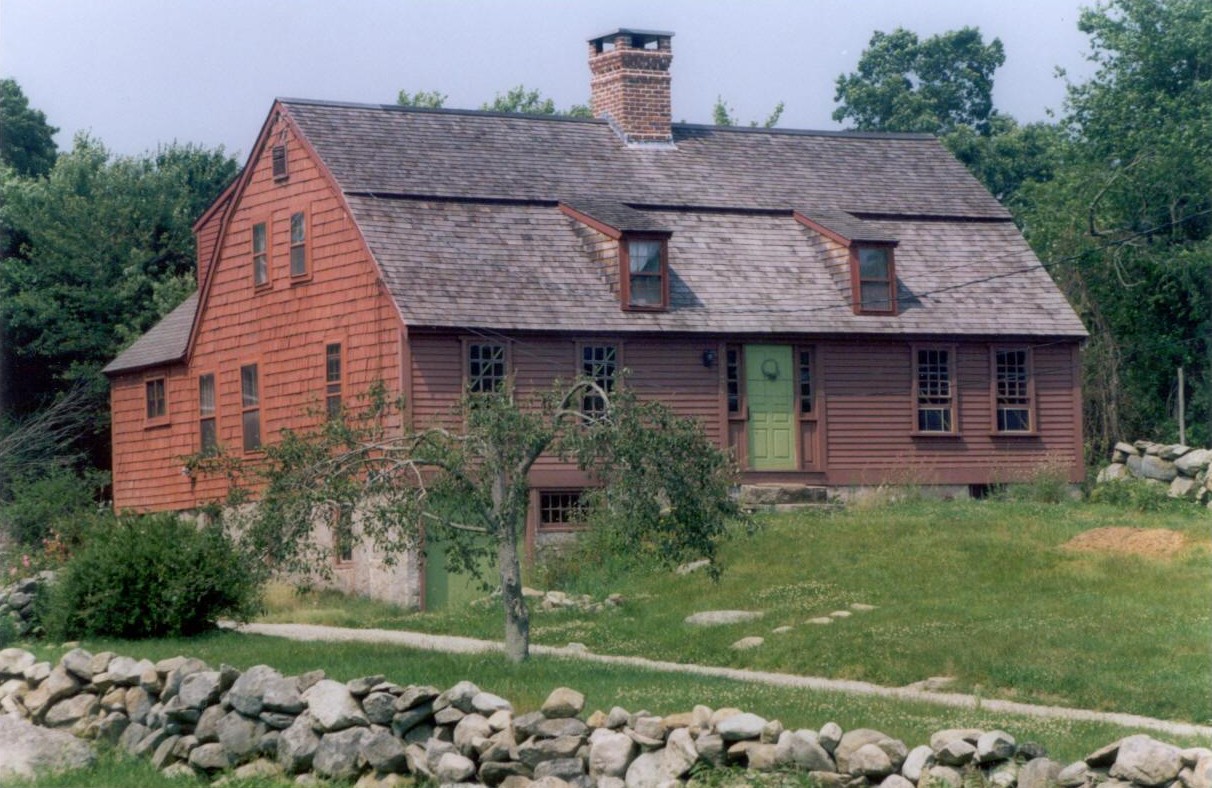
|
| The Allen Whipple Farm, Quakertown, Ledyard, Connecticut. |
I was born to parents Allen J. and Alice Gertrude Whipple on November 27, 1906. I was the youngest of seven children. I had three brothers and three sisters: Herold, Clara, Jane, Effie, Nathan and Carl. Our home was a little farm in Ledyard, Connecticut. The section where we lived was called Quakertown and there were still some descendants of the Rogerene Quakers living there when I was a girl.
There was a building across the road from our farm called the Hall. It was used for community dinners and programs and, whenever a minister came to our town, for religious services. I remember my mother taking me to many of these events. I loved to sing, and when I was three, my mother took me to the Hall to sing “Away In A Manger” for the Christmas program. She had to help me onto the platform and I remember seeing all those people in front of me and becoming nervous.
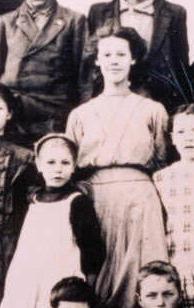
|
| Doris and Effie Whipple in a school group photo, probably 1913. |
My sister Effie was seven years older than I, and when I was four, Mamma let me go upstairs to sleep with her. We had a large bedroom with our two big double beds in it. Clara and Jane had one, and Effie and I had the other. My brothers had the other little room upstairs.
The fall I was six I begged my mother to let me go to school. She said I wasn’t old enough, but she took a wooden box, sawed one side on a slant, nailed some smooth boards across it, and put four legs on it to make me a little desk. Then she painted it. We had an old, worn first reader and Mamma taught me to read, write, and do numbers. In the spring she let me go to school with my sister Effie. It was almost a mile to our little red schoolhouse. The teacher put me in first grade, and when school was out, I had a card promoting me to second grade.
I was always happy when school started. There were twenty-five or thirty children in the little one-room school. The main part had desks, a long heating stove, and blackboards in front and on both sides. The girls and boys each had a cloakroom and there was a small entryway where we went in. We began to say the Pledge of Allegiance during World War I. We also recited the Lord’s Prayer every day. The teacher taught reading, history, arithmetic, English, geography, and penmanship. In school we had a lot of memorizing. I learned history dates, the names of rivers, cities, and the capitals of various countries as well as the states. We memorized all kinds of poems from “I Have a Little Shadow” to “The Chambered Nautilus.”
Recess and lunchtime were fun. We played games like tag and hide-and-seek. There was another game, duck on the rock. There were many rocks in the schoolyard so we never ran out. We all took our lunches to school with us. It was hard for some of the children because their parents were very poor and all they had was johnny-cake made of cornmeal. My parents were poor, too, but my mother always baked bread for our lunches. My lunch was bread and butter, a hard-boiled egg, and an apple. We grew the apples and stored them in the cellar to last for the winter.
At home we ate johnny-cake, too. It was made of finely ground white cornmeal. My dad raised the corn and would take a large sack of it to the mill whenever we need it. The ground corn was called grist. The millwheel was turned by water and had two huge stones that moved as the water ran over the wheel. When the ground corn came out, it was almost as fine as flour. We used molasses as a sweetener. Sugar was too expensive. Mamma only used sugar for special things like pies and cakes. When our molasses jug was empty, Daddy would go to the store and have it filled again. It was a much better grade of molasses than what we have now. It was a light golden brown color.
We had a cow and chickens and Daddy always had a pig he fattened up. In the middle of winter the pig was butchered and quite often we gave some of it to a neighbor or two. When these neighbors butchered, we received the same kind of meat we had given them. My mother made sausage and Daddy put what is now used for bacon in brine to make salt pork and we used it to flavor beans and other vegetables as well as for clam chowder. We had a large chimney in our house and Daddy would climb a ladder with the hams and shoulders of pork and hang them over a large iron rod that went across the chimney. These hams and shoulders had been in brine before he put them in the chimney. He was always careful to burn just
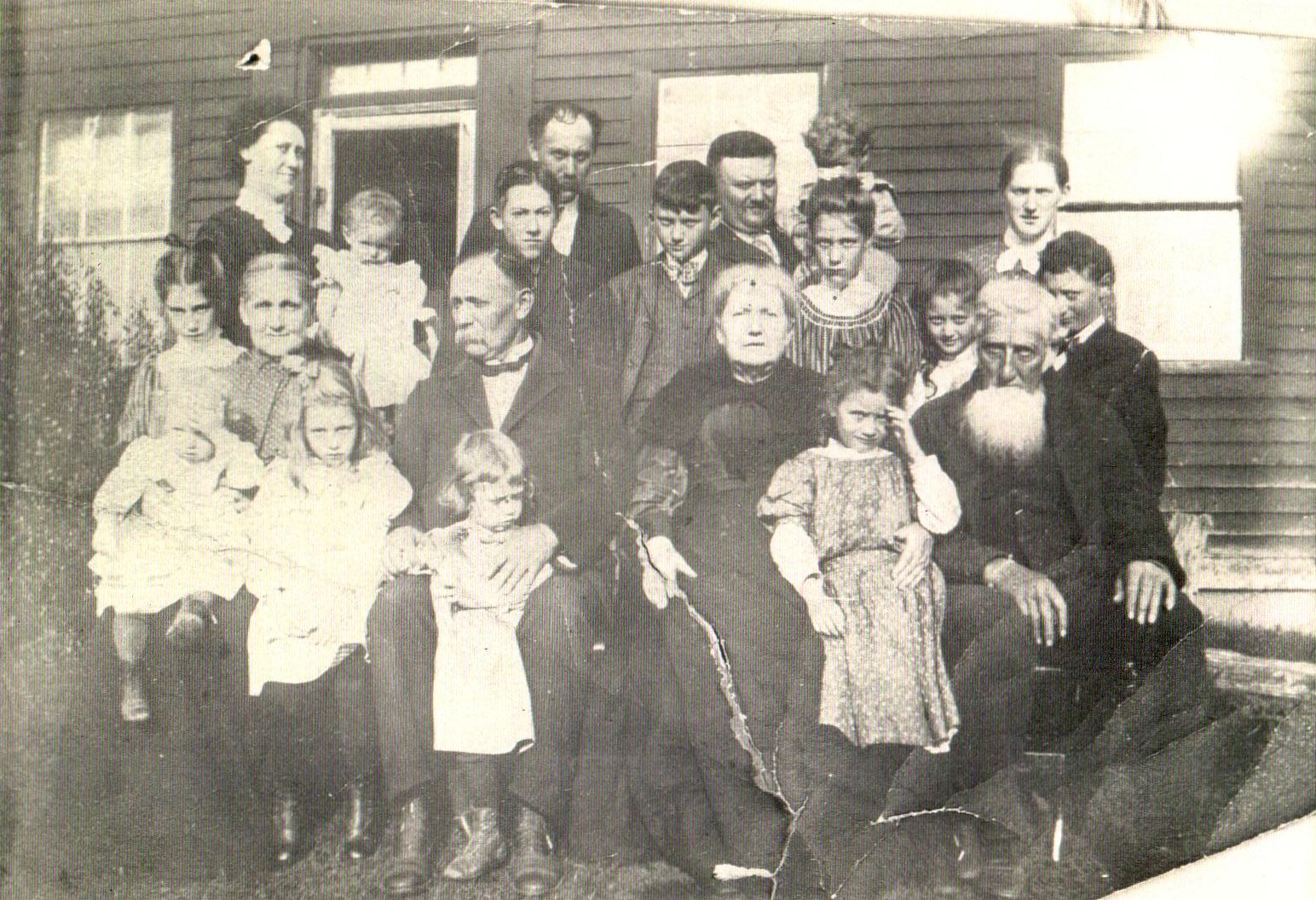
|
| Family gathering, 1904. Jane and Nathan Crouch, seated on the left, and Mary and Zachariah Whipple, seated on the right. |
Thanksgiving was always a happy time for our family. We would go to Grandpa and Grandma Whipple’s house (Zachariah and Mary). My Grandpa and Grandma Crouch (Nathan and Jane) always came too, with Uncle Jim’s family (James Watrous and Cynthia Whipple Watrous) and sometimes Aunt Libby and Aunt Emma. Aunt Cynthia was my father’s sister and they had a large family so there were always lots of cousins to play with. Grandpa Whipple lived quite a way off the road. When the family came, he would open the big barn doors and hang a swing in the doorway. The swing was wide enough for two and we played until dinner. Sometimes there were so many children that we had to wait for the grownups to finish eating and then we had the big, long table all to ourselves.
My Grandma (Mary) Whipple was sick a great deal and died in 1913, just after my seventh birthday. I liked to go to visit my Grandpa Whipple. One time I begged to stay all night so I could listen to Grandpa’s stories. He had a long white beard and I would sit on his lap and listen to him tell about the families that started west. He told me they got as far as Iowa and then were so homesick that one after another they turned their wagons around and came back to Connecticut.
Grandpa and Grandma (Nathan) Crouch lived on a farm near Groton. They would come over to our house nearly every Sunday and have dinner with us. I loved to peek into the baskets Grandpa brought. There would be many treats that we didn’t very often get. My mother would hitch the horse to the buggy and she and I would go over to my Grandma Crouch’s.
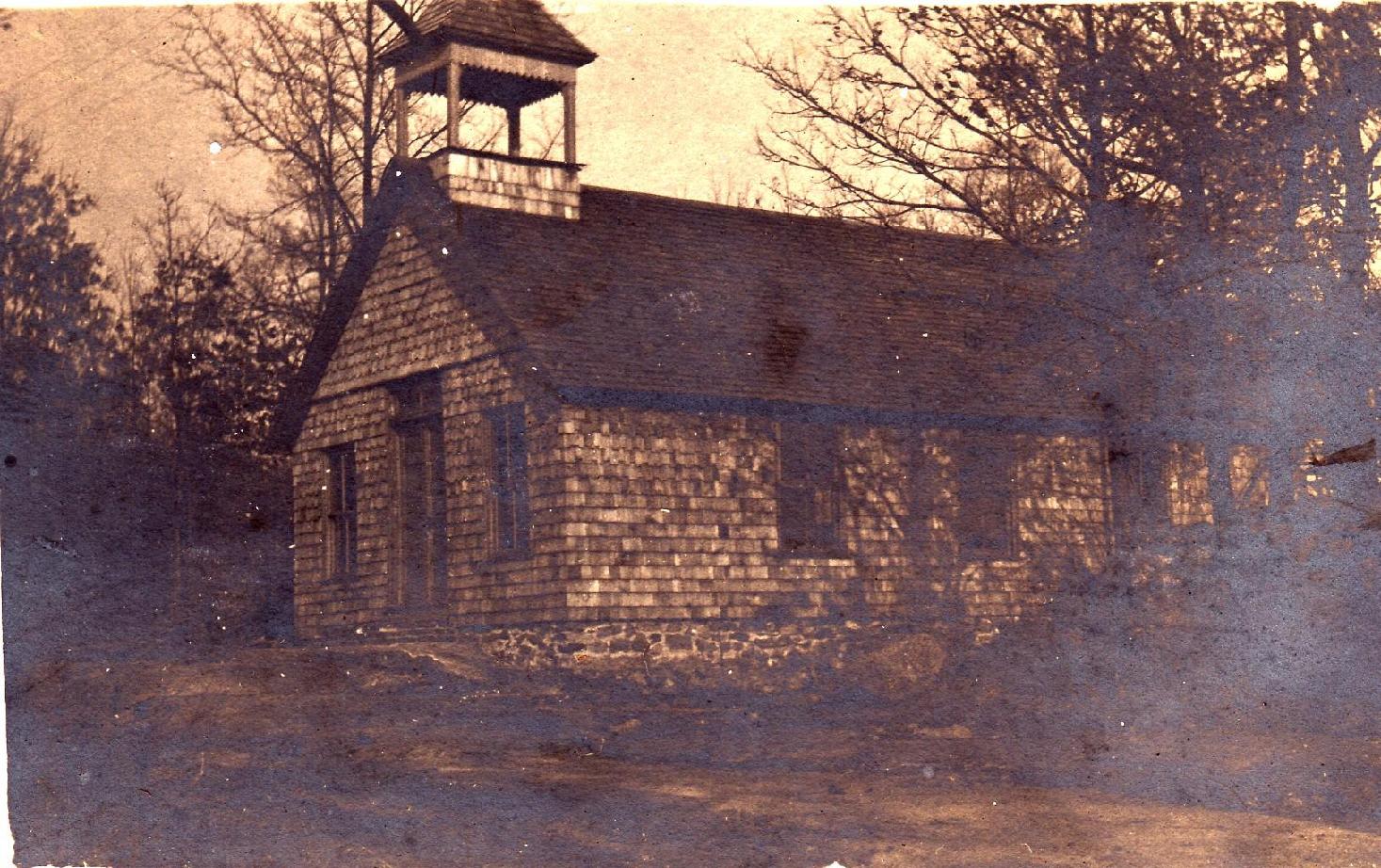
|
| The chapel built in Quakertown for Nathan Crouch, some time after 1914. This is where, in 1925, Doris and Floyd Whipple were married. |
Grandpa Crouch came to live with us for a year or two and then he married again. He bought a house with quite a lot of land that bordered ours. On this land, next to our fields, he had a pretty chapel built. There were services there quite often and I loved the Sunday School.
Every summer there were many picnics at Poquonock River. Our family liked to get together with Uncle Jim’s on the Fourth of July. We children loved to go wading in the river. My mother always made a big clam chowder and Uncle Jim made a fish chowder. They cooked them over an open fire. There were many baskets of goodies and usually several large watermelons. Each family spread a big white tablecloth on the grass and put the food on it and set out dishes and silverware. Then everyone helped himself.
Seafood was very plentiful. We frequently had fish, clams, and crabs. There was a man who came once a week all through the neighborhood. He had a wagon fixed so he could carry ice to keep the fish fresh.
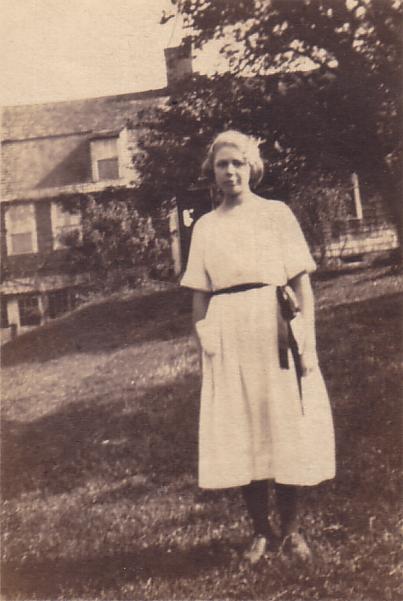
|
| Doris Whipple, ca. 1920, in front of the house where she grew up. |
I loved the outdoors. From the time I was quite small I roamed all over our little farm. There were rocks everywhere but one field was special. This was where the ledges were. The surface of the ground was covered with a layer of rock, which gradually became higher and almost flattened out on top. At the end of the ledges was a cliff about ten or twelve feet down. I would walk up the ledges until I came to the top. In the spring I would find the early violets. Later on, the ledges would be covered with columbine and other flowers. In the same field across from the ledges was a small pond. Around it were the white violets, which were very sweet. In the evenings we could hear the bullfrogs and the peep frogs there. Sometimes my mother was worried about me because I was gone so long. When she asked where I had been, the answer was always the same, “I was looking for flowers.” Part of the farm was across the road that went up Gallup Hill. On that road there was a brook that ran under the road and down the hill. I loved that brook. There were flowers growing by it and I liked to make a dam across it and make little waterfalls.
When I was about ten my brothers Nate and Carl taught me to ice skate. Nearby were some large ponds, and as soon as they froze over, that was where we’d be. There was one pond just off the road. We
|
|
| Doris Whipple, early 1920s, harvesting cranberries. |
My dad grew strawberries, corn, peas, green beans, and cabbage to sell. He would have help getting the crops ready for market and early the next day he would hitch up our horse, Jack, to the express wagon and drive in to New London to peddle the fruit and vegetables. He always sold whatever he grew. When I was nine or ten, Effie started picking strawberries for a neighbor. I went with her and watched her pick. Mr. Haley, the neighbor, didn’t want me to pick because he thought I would pick green ones or pull the stems off. I kept asking to pick so he gave me a lesson and, after that, I picked strawberries every day with my sister. I also picked peas and green beans by the bushel. We only made a few cents for a bushel but a dollar would buy a pair of shoes and cloth was only a few cents a yard. I remember earning enough money to buy most of my own clothes after I was ten.
When I was in the eighth grade, we had a new teacher, Miss Bailey. I really liked her. She took us on nature walks the last hour on Fridays. She had a sewing class for the girls. We made baby clothes and when we were finished, we took them to a lady who had twins. She was so happy to get them.
I won the spelling bee in our school and the district superintendent decided that thirteen schools should compete, so I went to Ledyard Center for that competition. I won and Miss Bailey asked my mother if I could go to the county spelling bee in New London. My mother agreed and I stayed all night at Miss Bailey’s home and the next day we went to New London. I had never seen so many people in one place. I spelled several words, but was so nervous, I was glad when I sat down. I graduated from eighth grade when I was thirteen. I wanted to go to high school very much but there was no high school close enough for me to live at home and attend. My family could not afford to let me board in town.
My mother was called to homes when someone was sick or having a baby. She was a good nurse but never trained in a hospital. During the flu epidemic of 1918, Mamma was called to many homes. Then our family began to come down with it. Jane and Effie were very sick and then my brothers Nate and Carl got it and were very sick, too. I was hardly sick and I didn’t like to stay in bed. Finally Mamma got the flu, too, and we almost lost her. My sister took care of her and the doctor came often. It was a long time before she was well. About this time I had a best friend, Lucy Chesbro. We would walk to each other’s house to visit and sometimes stay all night. She became sick with typhoid fever and died when she was about fourteen.
I continued to pick crops to earn money and kept the house for my father and brothers when my mother was away nursing. One summer I met Muriel Whipple (Haddon) at a picnic and she invited me to come over to her house for a visit.
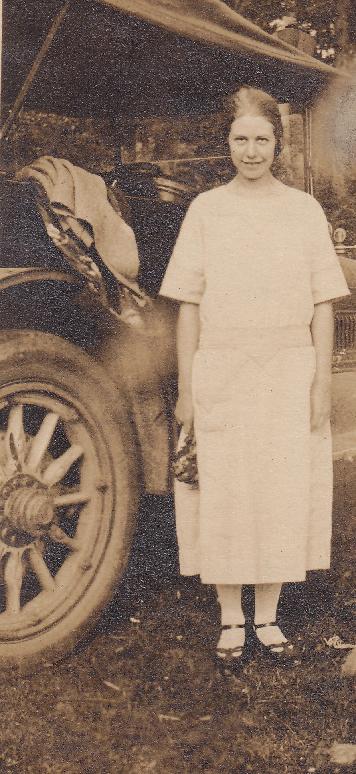
|
| Doris Whipple, 1925. |
The Saturday after I came home from visiting Muriel, I was just finishing the supper dishes when my brother Carl came in and said, “There’s some fellow outside who wants to see you.” It was Floyd. He wanted to take me to the movies. I knew he was a nice young man and my mother said I could go. On May first I found a beautiful May basket hanging on our door. There was a box of candy in it and flowers from a florist. I went looking for whoever had hung the basket and it was Floyd. That summer Muriel, Floyd and I went on an excursion boat from New London to Newport, Rhode Island. It was a wonderful trip. We got to Newport around noon and had two hours to explore and get our lunch. On the return trip, many of the people on the boat were seasick and there were boxes of lemons everywhere. The Atlantic was very rough around Point Judith. We went up on the third deck which was the top deck and we were not sick.
That fall Floyd asked me to marry him. I was almost eighteen and my mother wanted me to wait a little longer. We set the wedding date for March 10, 1925. Floyd gave me a beautiful cedar chest for my eighteenth birthday and I made quilts and other things to put in it. Just before the wedding we rented a cottage a short distance from Floyd’s parents’ farm and began to furnish it. A few weeks before the wedding, Floyd’s Aunt Norah (Emerson and Norah Whipple) had a surprise kitchen shower for me. She had invited neighbors as well as our families. By this time most of my siblings were married: Herold to Cora (Rogers ), Clara to Clifton Watrous, Jane to George Watrous, Effie to Frank Shafer. I had many nieces and nephews.
We had the wedding in the chapel. I had four little flower girls, Aunt Norah’s two girls, Mildred and Dorothy, and two of my nieces, Marie Watrous and Elinor Whipple. One of my old teachers, Gertrude Watrous, played the wedding march, and we were married by Mr. Hubbart from Boston. Euel Clark, Floyd’s friend, sang “The End of a Perfect Day.” Then we had wedding cake and refreshments.
We stayed the first night at Aunt Norah and Uncle Em’s and left the next morning on our honeymoon. We drove to New York where we stayed with friends and family. We went to the top of the
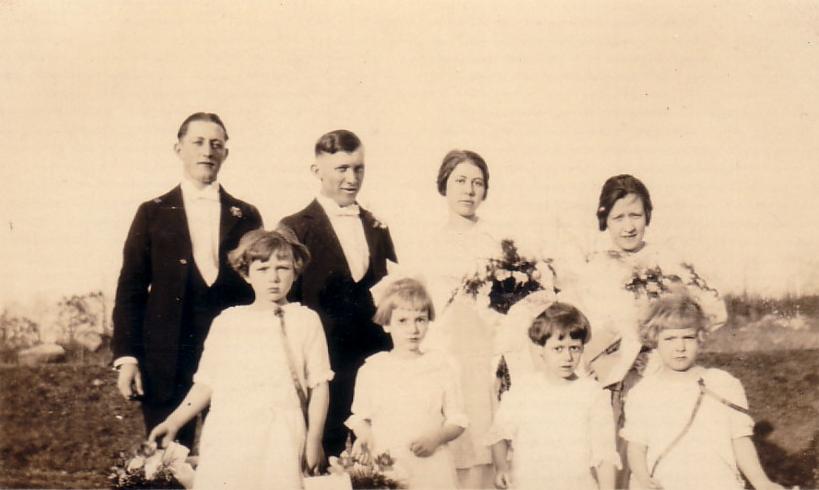
|
| Bride and groom and attendants, March 1925. |
We returned to our little house and the carnations I had carried in the wedding were in a vase and the whole house was fragrant from them. Our pantry had been stocked with groceries and I began what would turn out to be 53 years of sharing my life with Floyd.
Return to QUAKERTOWN Online